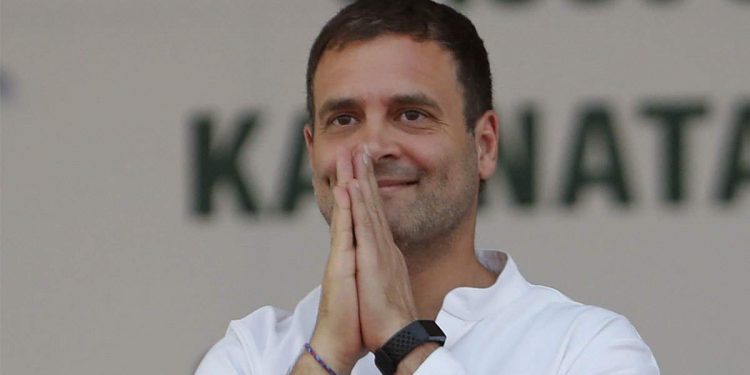Managing the crisis of an unprecedented nature like the outbreak of COVID-19 that has affected almost the entire globe requires far-sighted vision, well-concerted long-term strategy and availability of sufficient resources to deal with that crisis.
However, as early as February 12, Congress leader Rahul Gandhi had raised the alarm about the impending COVID-19 crisis but his suggestion was not taken seriously. By March 15, the number of confirmed COVID-19 cases had crossed 100-mark.
A couple of days later on March 22, Modi government woke up to the magnitude of the problem of COVID-19 and Prime Minister Modi called upon the nation to observe a 14-hour voluntary public curfew and subsequently on March 24, Prime Minister ordered a nation-wide lockdown for 21 days. Being in the habit of hurling surprises like demonetisation, PM Modi declared on March 24, a 21-day long lockdown with just four hours’ notice from midnight onward, without any pre-planned strategy and failing to plan for the impact of his announcement on India’s vast informal economy. In this regard, Rahul tweeted that he was feeling sad because that was completely avoidable: “We had time to prepare. We should have taken this threat more seriously and have been much better prepared.”
When on March 26, Modi government unveiled a `1.70 lakh-crore economic package entailing free food grain and cooking gas to the poor for the next three months, one-time doles to women and poor senior citizens to contain the impact of nationwide lockdown, Congress leader, while welcoming the financial package, hailed it as the first step in right direction.
Pragmatic suggestions
Almost a week after the clamping down of a 21-day lockdown, Rahul, in a letter addressed to PM Modi, calling his attention to India’s unique conditions comparable to other large countries that were following a complete lockdown, emphasized on taking different steps. Pointing out that the number of poor people in India that were dependent on a daily income was simply too large for the country to unilaterally shut down all economic activity, Rahul cautioned that the consequences of a complete economic shutdown could disastrously amplify the toll taken by the COVID-19.
Calling upon the government to consider a nuanced approach that takes the complex realities of Indian people into consideration, Rahul emphasized on according priority to protect and isolate the elderly and vulnerable from the virus, providing big dedicated hospitals with adequate beds and ventilators for large population centres, making available personal protection equipment (PPE) and masks for health workers and dramatically increase the number of tests to get an accurate picture of the spread of the virus. Interesting, it was at this stage on Mach 30, just a week past the 21-day long lockdown that Rahul had written: “I suspect that the government will eventually extend this lockdown even further” and it eventually happened April 14 when Modi government extended the lockdown till May 3.
Reacting to the manner in which lockdown was being implemented without making any adequate arrangements for huge migrant labour population scattered over different parts of country in terms of arranging for their stay, food and ration and pushing them back home, the former Congress president said April 2 that India needed to adopt a country-specific strategy and prepare the country for impending economic consequences, and not blindly follow what other countries were doing. He emphasized that India had to fight the global pandemic with an India-centric strategy.
The Congress party urged the Central government to empower states in their fight against COVID-19 by providing them with more financial and medical resources. Modi government was also called upon to take the state governments on board while evolving strategies to fight the global pandemic.
Prior to extending lockdown from April 15 to May 3, Modi government held a video-conferencing with all state Chief Ministers to ascertain their respective views and this was for the first time that Modi government had consulted the state governments to devise further strategy to deal with COVID-19. This is what Rahul and other Congress leaders had been emphasizing on since the day Modi government assumed office. However, dealing with global pandemic required collective and cooperative actions and not unilateral imposition of decisions like demonetization, which had already played havoc with nation’s economy.
In the immediate aftermath of the beginning of the second phase of lockdown (April 15-May 3), Rahul April 16 mooted a slew of suggestions on how Modi government should combat the COVID-19. They include: decentralisation of resources to fight COVID-19; more powers to state CMs to handle COVID-19; exponential expansion of COVID-19 testing; dividing the country into Hotspot Zones and Non-hotspot Zones and aggressive testing in Hotspot Zones; in order to meet the economic backlash of COVID-19, create a food net and implement NYAY scheme to provide financial help to the poor; and protecting big strategic companies and creating a defensive package for MSMEs. The former Congress leader, while mooting these suggestions, made it clear that it was the interest of the people of India that was supreme and that needed to be protected.
Way forward
Going by the tone and tenor of suggestions made by Rahul since the outbreak of COVID-19, there seems less of politics and more emphasis on pragmatic nature of implementing these suggestions. Saving the lives of the people from the pandemic as well as saving the livelihood of the people is the top priorities of the government as well as all Opposition parties at this critical juncture. Rahul’s repeated emphasis on augmenting the rate of testing has not seemingly caught adequate attention of the concerned authorities. On the contrary, spokespersons of the government, including Indian Council of Medical Research ICMR), in their press briefing April 16, tried to defend government’s present rate of testing by comparing it with countries like Japan. However, what Rahul Gandhi has been trying to focus on is to increase the present rate of testing and there seems no harm in following this advice.
Effective testing and contact tracing have proved to be effective measures to contain the outbreak early. As some experts have pointed out, pervasive testing, comprehensive contact tracing, and persistent social distancing are precisely what will be required in order for portions of the economy to recover and safely reopen and India at this critical need this. This crucial phase has proved Rahul to be the best advisor from the rival camp for Modi government because Rahul’s criticism of ‘Suit-Boot Ki Sarkar’ forced Modi to project his pro-poor image and in these trying times, once taunted as ‘Pappu’ by Modi supporters, has emerged as the one offering statesman like advice.
Dr. Anil Singh
The writer is the Executive Editor of News24 & views expressed are his own






































